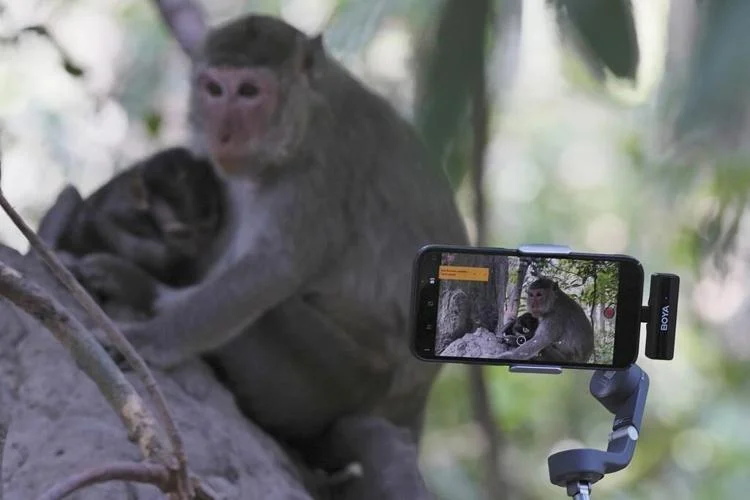
AP PHOTO/ Heng Sinith
In Cambodia's Angkor UNESCO site, disturbing videos of monkey abuse are under scrutiny. A baby monkey is forcibly doused with water, while another video shows a person stimulating a juvenile male macaque for the camera. While not all abuse is as overt, authorities say it's a growing issue as people seek online attention for profit.
According to Long Kosal, spokesperson for APSARA, the Cambodian office overseeing Angkor, the monkeys are being treated more like pets than wild animals. He highlights the primary concern of monetizing content at the expense of animal welfare.
APSARA, in collaboration with the Ministry of Agriculture, is investigating the most severe cases of abuse. Despite the challenges of identifying perpetrators, Long Kosal emphasizes that animal abusers will face severe legal consequences.
While platforms like YouTube and Facebook remove explicit content, countless other videos of monkeys remain, attracting thousands of views and subscribers. The process of creating these videos involves close interaction with the animals, leading to various issues, including dependency on human handouts and aggressive behavior towards tourists.
At Angkor's Bayon Temple, numerous YouTubers gather around monkeys, closely filming their every move. While feeding the monkeys is discouraged, taking videos is permitted, contributing to their dependence on humans and increasing aggression towards visitors.
The close interaction with tourists also poses risks of injury. Tourist Cadi Hutchings, for instance, was warned of the rising danger of monkey bites. She emphasizes the importance of maintaining a boundary between humans and nature to prevent such incidents.
Despite warnings, many tourists continue to feed the monkeys and take photos, unknowingly contributing to the problem. Some YouTubers justify their actions, claiming they provide food to the monkeys in exchange for taking their pictures. However, this practice only reinforces the monkeys' dependency on handouts and human interaction.
For YouTubers like Phut Phu, filming monkeys is a means of earning a living, especially amidst the economic challenges posed by the COVID-19 pandemic. Despite concerns about animal welfare, the allure of easy money through online videos remains strong.
APSARA faces significant challenges in addressing the issue, including identifying and apprehending abusers and dissuading YouTubers from exploiting monkeys for profit. While efforts are being made to combat abuse, Nick Marx of the Wildlife Alliance emphasizes the importance of viewers boycotting such content to curb the problem at its source.















